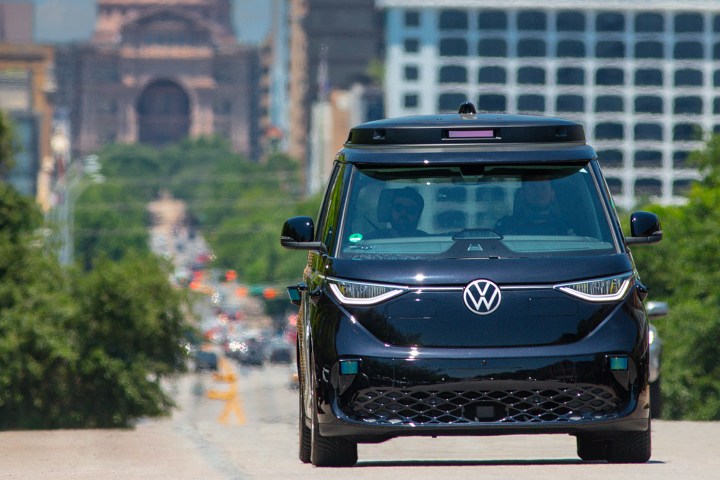Volkswagen is taking autonomous driving a little more seriously. While the likes of Tesla and Waymo have largely led the development of next-gen driving tech, the legacy automakers are certainly starting to invest more heavily. To that end, Volkswagen has announced its first autonomous driving program in the U.S.
As part of the program, Volkswagen has outfitted 10 all-electric ID. Buzz vans with autonomous driving tech, in partnership with autonomous car tech company MobileEye. Over the next few years, Volkswagen says it’ll grow this fleet of autonomous cars to cover at least four additional cities, with the current fleet operating in Austin, Texas. By 2026, Volkswagen hopes to commercially launch autonomous cars in Austin.

“We are thrilled to bring our exciting ID. Buzz vehicles to American road,” said Pablo Di Si, President and CEO of Volkswagen Group of America. “Expanding Volkswagen Group’s global autonomous driving vehicle program to the United States marks an important milestone for us. In the future, we will tap into rising demand for new mobility services, and with our iconic ID. Buzz, we will also offer a truly captivating product to support transportation services American consumers can rely upon and trust.”
Of course, while the cars are being tested in the U.S. right now, it doesn’t necessarily mean much for Austin residents. It doesn’t appear as though the cars will be used for any ride-sharing program, like Waymo in San Francisco. Volkswagen says it hopes to
That said, the end goal for Volkswagen, of course, is to launch cars that can drive themselves on American roads. It’s unclear if this means selling self-driving cars to individual customers or introducing the cars as part of a ride-hailing service.
Volkswagen, of course, is far from the only company building self-driving tech. All of the major automakers appear to be working on it in some capacity. For now, self-driving tech is largely limited to adaptive cruise control and other more basic technologies. That said, many manufacturers have been rolling out more advanced systems that can handle things like lane changes, and drive themselves on the highway without driver intervention. Then, there’s the likes of Tesla, which has what it calls “full self-driving” — though it certainly still needs driver attention and regular intervention.
Editors' Recommendations
- Tesla Autopilot vs. full self-driving: What’s the difference?
- VinFast is bringing a mini electric SUV to the U.S., and maybe a pickup, too
- Cruise autonomous vehicle drives over woman just after she was hit by another car
- An autonomous car in San Francisco got stuck in wet concrete
- Waymo taps the brakes on its autonomous-trucking project


